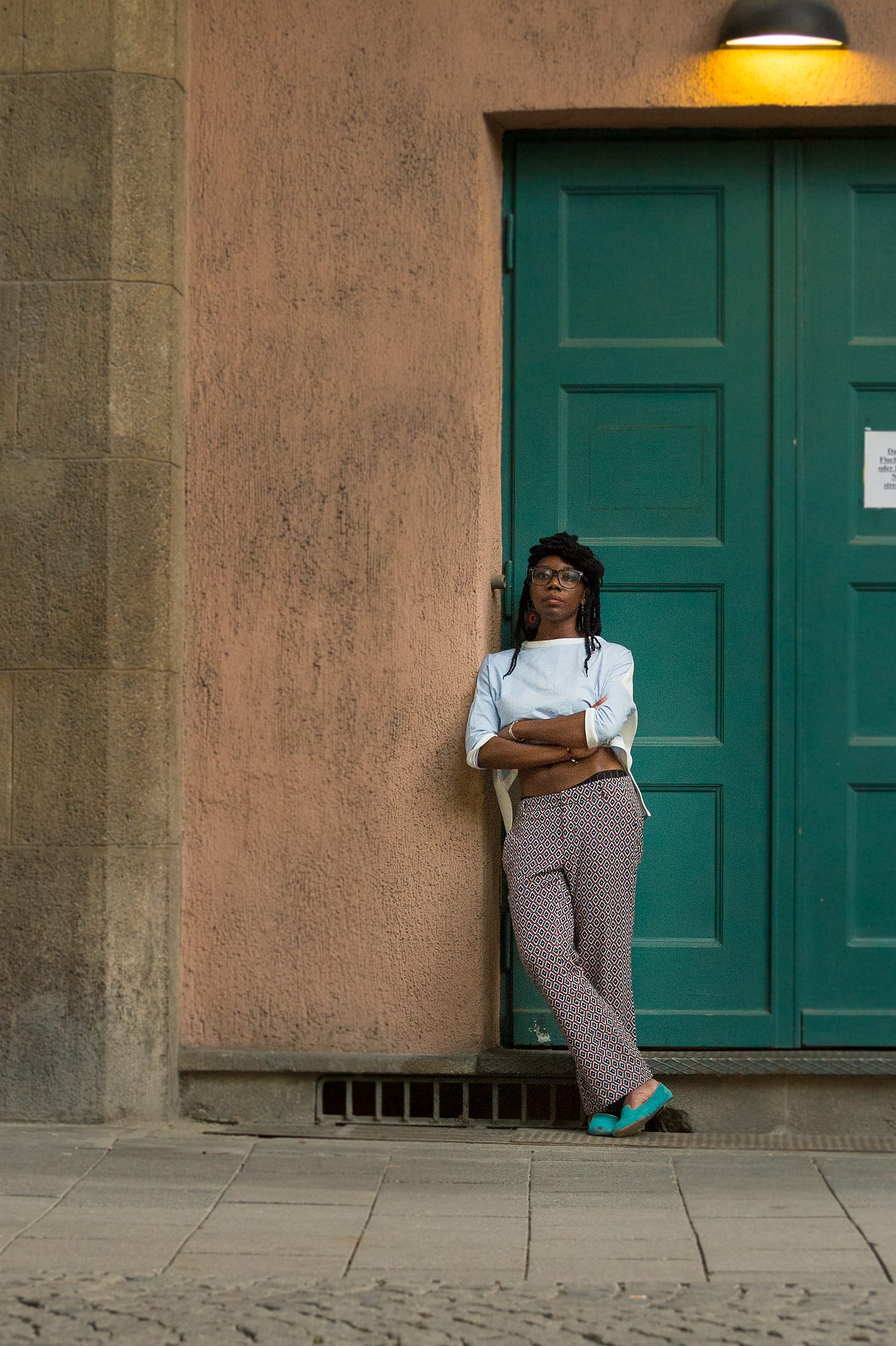Journaling The Process is an audio format through which I share the behind-the-scene of my life as a writer and Le Journal Curioso.

I recorded this audio on June 28th, one day after I received the news that I wasn’t going further with the application process for a business fashion fellowship I applied for a month and a half ago.
So, rejection is the theme of that second instalment of Journaling The Process.
In this instalment, I talk about:
How I am handling the rejection. It’s not the first and last time I will be rejected, but this one particularly hurt because it would have meant I would have been paid to learn and write—two of my favourite things. Time for writers is precious, especially as many, like me, work simultaneously—so being paid to write means being completely focused on your craft. And I am grieving this luxury I won’t have.
My resilience despite the rejection. Even though I am disappointed, the fact that they noticed my application means I have potential. I am very interested in feedback, even after a rejection, because it can boost confidence. About that last point, I tell my story of redundancy at MatchesFashion during the pandemic and how a failed application to the editorial team still gave me the confidence that my writing was worth it.
Paywalling specific sections (more on that below)
Podcast idea about my family story. I started years ago, but it was short-lived. Thanks to
who went and listened to it, I know I am not too bad a podcaster. If you’re curious, you can listen to it here. If you do, let me know your thoughts in the comments!Podcast idea about Putignano, where I live in Apulia (disclaimer: it is three parts!). If you are on Notes, Substack’s Twitter, you might have seen some Notes I call 'Apulian Daily Facts,’ I tell little facts about Putignano or Apulia. I am fascinated by Italy, and I have never visited Southern Italy before except Rome and Naples, so I want to talk about this part of the country minus the cliché rose-tinted narration many media have about the South.
TO PAYWALL OR NOT TO PAYWALL? THE QUESTION TO WHICH I FINALLY FOUND AN ANSWER
I thought paywalls were annoying for a long time until I observed my behaviour as a reader/viewer.
One of my favourite podcasts is The Cutting Room Floor, created and hosted by fashion designer Recho Omondi. I started listening to it when it was still fully available on Spotify. At the time, Recho Omondi was still considering how to monetise it and wanted to keep the podcast available to as many people as possible. Then she scrapped the idea and went fully behind a paywall on Patreon.
So what did I do? I paid for the monthly subscription and didn’t complain because not only did I know she was a terrific interviewer, but I was also aware that to produce at the level she wanted while staying independent and true to herself, the money she needed should come from people like me—her viewers.
I am fascinated by the idea of letting your audience contribute financially to grow your publication. This model implies that you have created a solid and trustworthy relationship with your audience.
Here on Substack, I have seen people paywall all their publications, create exclusive pieces for their readers, let everyone read their writing but only allow their paid subscribers to comment, etc. In brief, there are many ways to create your desired business model.
As for me, I subscribe to the idea that culture should be accessible, but I also understand that for it to flourish, it needs funding. Writing is a (painful) passion that I take very seriously. But it is also a skill that requires time, dedication, and research. For that reason, after months of writing here, I turned on paid and allowed you to subscribe monthly or annually or contribute through a Buy Me A Coffee link.
Now, what with the paywall? If you’ve listened to today’s audio, you know I have some podcast ideas and want to produce them well. People think the podcast is often just audio, but it combines plenty of skills, from writing to audio editing and sound engineering. It is literally like giving a voice to a script. Because podcasting requires such skills, I know at some point, I will need professional help. I mean, my standards are The Cutting Room Floor and
, so you can imagine that I am setting the bar very high, so to reach it, I need funding. And paywalling the podcast seems fair to me as it will require production.For writing, I intend to paywall articles as part of a series such as Black Europeans You Should Know because it requires a lot of time to do as there is a lot of research behind it. It is almost like writing a book. I haven’t said it in today’s audio, but I want to write a series about clothing and fighting oppression. It will be called Pièce De Résistance, and I already know the first piece of clothing I’ll discuss is the keffiyeh. And again, to do that I will need to do extensive research, interview people, in brief, work like an investigative reporter.
Paywalling means acknowledging that I deserve to be paid for my work, taking the work I do seriously (because it is also about myself giving value to my writing), and above all, putting back what I earn here into my creativity.
As you can see, I am thinking of paywalling specific stories, not the whole publication, because, as I said, I believe culture should be accessible. Nonetheless, I also think paid work is essential for culture to flourish.
This is why I’d like to invite you to upgrade to a paid subscription below.
In the meantime, I want to thank all of you. You don’t know how much you are helping me stay confident in what I want to accomplish with Le Journal Curioso.
Thank you,
Emmanuelle








#2 Journaling The Process: Feeling The Rejection & New Ideas For Le Journal Curioso